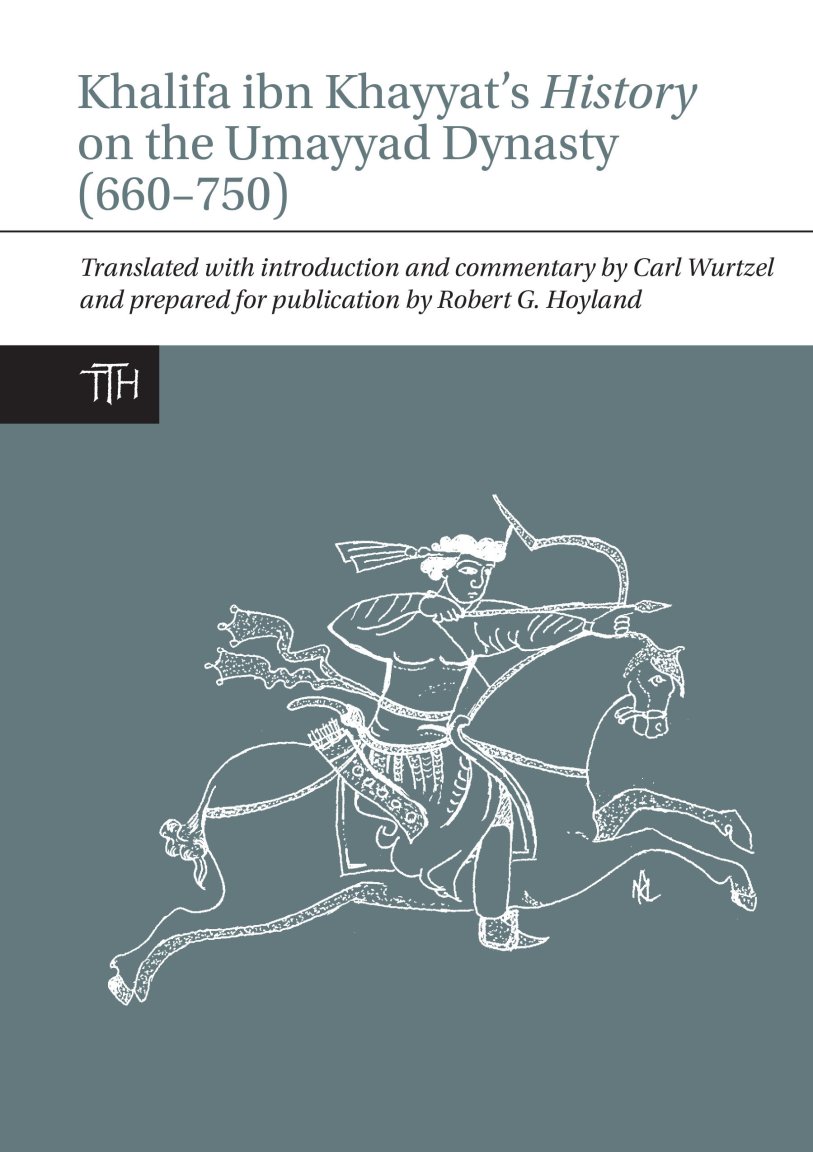The translator
Dr Carl Wurtzel is a professional translator; certified by the American Translators Association as a translator from Arabic to English. Carl is also an instructor in the New York University (NYU) School of Continuing and Professional Studies translation program.
This study and translation was originally submitted by Carl Wurtzel as a doctoral thesis at Yale University in 1977 under the supervision of Franz Rosenthal, one of the greatest Orientalists of modern times.
Robert G. Hoyland is Professor of Islamic History at the Faculty of Oriental Studies, University of Oxford. Previous publications include ’Theophilus of Edessa’s Chronicle and the Circulation of Historical Knowledge in Late Antiquity and Early Islam’ (LUP, 2011).
dy and translation was originally submitted by Carl Wurtzel as a doctoral thesis at Yale University in 1977 under the supervision of Franz Rosenthal, one of the greatest Orientalists of modern times.
Presentation
Khalifa ibn Khayyat was born in the southern Iraqi city of Basra in the 770s AD and in his lifetime Iraq grew into a thriving centre of culture and trade and one of the most populous and prosperous regions of the world. He was one of a generation of scholars who gave concrete form to Islamic religion and culture and bequeathed to us the first books that can be said to be distinctively Islamic. Khalifa’s History is the earliest extant work of Muslim historiography and this alone makes it deserving of greater recognition.
It carefully records the key events in the life of the Muslim community from the prophet Muhammad to Khalifa’s own day. The section on the Umayyad dynasty (660-750), which occupies about half of the work, is noteworthy because it gives a more positive assessment of the Umayyad caliphs than later narratives. Over time they were increasingly censured for having corrupted the purity of early Islamic society, and yet it was they who had overseen the conquest of cities as far afield as Seville and Samarkand and established Muslim rule over all the lands inbetween. They built the magnificent mosques of Medina and Damascus that still stand today and the palaces that litter the desert margins of modern Jordan and Syria. Khalifa’s History helps us to better evaluate the achievements of this dynasty and also to analyze the beginnings of the discipline of Arabic historical writing in the framework of Islamic civilization.
This study has been prepared for publication, with a Foreword and updated bibliography, by Robert Hoyland, professor of Islamic History at Oxford University.
Contents
Foreword by Robert Hoyland
Preface by Carl Wurtzel
Abbreviations
Introduction
- 1. Khalifa’s Life
- 2. Khalifa’s Approach to the Writing of History
- 3. Khalifa’s Religio-Political Attitudes in the Taʾrῑkh
- 4. The Sources for the Umayyad Section of Khalifa’s Taʾrikh
- 5. The Use of Khalifa’s Taʾrῑkh by Later Writers
A Note on the Two Printed Editions of the Taʾrῑkh
Conventions
Translation
Bibliography
Index

